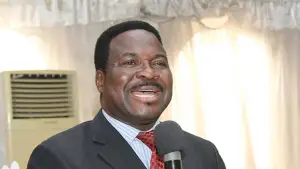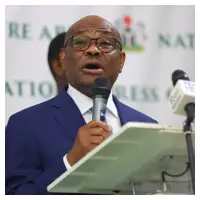Former Minister of Transportation, Chibuike Amaechi, has launched a scathing criticism against the current Chairman of the Independent National Electoral Commission (INEC), Mahmood Yakubu, accusing him of bias in the electoral process.
Speaking during an interview on Arise News on Tuesday, Amaechi contrasted Yakubu with former INEC Chairman Attahiru Jega, whom he described as "a real democrat." According to the former minister, had Yakubu been at the helm of INEC in 2015, the All Progressives Congress (APC) would not have succeeded in defeating then-incumbent President Goodluck Jonathan.
"The current chairman of INEC, if he was the chairman of INEC in 2015, we would not have won. May God bless Jega," Amaechi stated emphatically. "The current chairman of INEC can only be compared to Iwu."
Concerns Over New Party Registration
Amaechi, who is reportedly part of a coalition of politicians aiming to challenge the Tinubu administration in 2027, expressed doubts about the electoral body's impartiality in registering new political parties.
"When we were to register APC, Jega opened the door and we complied with the registration requirements. He got APC registered," Amaechi recalled. "The current man, if you comply with all these, he would not register you. Already, INEC is biased."
This criticism comes as Amaechi and other prominent political figures, including former Kaduna State Governor Nasir El-Rufai and former Vice President Atiku Abubakar, are reportedly engaged in discussions about forming a new political coalition ahead of the 2027 general elections.
Electoral Context and Implications
Jega presided over the 2015 general elections that saw the APC defeat the then-ruling Peoples Democratic Party (PDP), marking the first time in Nigeria's democratic history that an opposition party unseated an incumbent through the ballot box.
Yakubu, on the other hand, has overseen the 2019 and 2023 general elections, both of which resulted in APC victories at the national level, though not without controversies and legal challenges from opposition parties.
Amaechi's comments highlight growing tensions within Nigeria's political landscape as preparations for the 2027 elections begin to take shape, with questions about electoral integrity and the independence of INEC likely to remain central to political discourse in the coming years.













